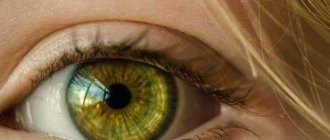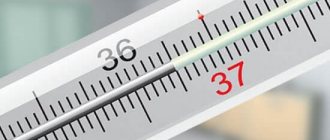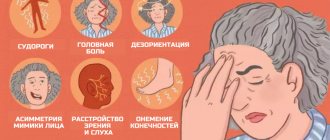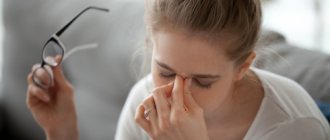During the period of night rest, people rarely sleep in one position. They move their legs and arms, roll over from side to side, jerk their limbs, or generally shudder. Often they don't even notice it.
What causes muscle spasms? Is this a physiological need or the cause of a possible disease? This feature is called by scientists as hypnagogic twitching or nocturnal myoclonus.
In 70% of the population this is a physiological feature. Most often occurs at the initial stage of sleep. It has no symptoms, goes away on its own and, only in isolated cases, is pathological.
Norms of twitching in a person's sleep
Most of humanity has encountered myoclonus, calling it twitching. This is a feature of the physiological state.
Occurs when frightened or during the first stage of sleep. Usually one-time and goes away immediately.
Muscle contractions also occur after physical training. In children - during intensive growth. Even hiccups are classified as physiological myoclonus.
You should not worry if these contractions are isolated, pass quickly and do not cause physical discomfort.
But, if symptoms tend to become more frequent and intensified, interfere with rest and are observed while awake, you should be wary and seek help from a specialist.
Who is most likely to experience myoclonus?
A baby twitches in his sleep as much as an adult or elderly person. Moreover, twitching occurs more often in the initial stages of falling asleep. This leads to the conclusion that the problem is equally diffusion for all age categories.
Types of spasms and twitches
Myoclonus is a sudden general contraction of a muscle or spasm in muscle fibers. If a person twitches when falling asleep, then there is a clear connection with a malfunction of the central nervous system.
Depending on the characteristics of spastic contractions, they are distinguished:
- synchronous and asynchronous movements in muscles;
- twitching rhythmic and irregular;
- constant in regularity and episodic;
- spontaneous and associated with exposure to an irritating factor.
In terms of prevalence, a person's startle during sleep is accompanied by:
- contraction of local muscles of the arms or legs;
- affecting the entire muscle group;
- segmental twitching in a certain part of the body;
- generalized seizures.
The condition may worsen over time.
Factors influencing twitching when falling asleep
There are several main factors that can affect the intensity of nighttime shuddering:
- psycho-emotional situation at work, scandals at home, increased suspiciousness, depression lead to mental disorders. They are one of the main factors of a restless stay. They can cause neuralgic syndrome and lead to pathology;
- physical overstrain of the body during the working day. Excessive intake of lactic acid into the muscles causes tone and involuntarily contracts them;
- The process can also be influenced by external stimuli, such as the light of street lamps, noisy neighbors, extraneous noise from the street. These factors negatively affect the sensory systems, disrupting not only sleep, but also mood;
- Experts say that the position at the time of rest is very important. Blood flow should not be disturbed, muscles should be in a relaxed state, internal organs should not be pinched;
- An important factor is the excessive intensity of the brain during the daytime. This problem is associated with people whose work involves brain activity. And also creative people;
- excessive consumption of alcohol, energy drinks and caffeine will contribute to restless rest;
- The computer and computer games excite the brain, which can provoke nighttime impulses.
Why does muscle spasm occur?
A hypnagogic jerk is a muscle spasm that occurs spontaneously and can be triggered by some external stimulus, such as a bright light or loud sound. Researchers have found that approximately 60% of people experience muscle cramps when falling asleep . At the same time, some people continue to sleep without noticing these cramps, while others wake up because of them.
Michelle Drerup, a specialist at the Sleep Disorders Center, believes that the cause of such cramps may be excessive fatigue, fatigue, or stress.
These jerks can be caused by regular lack of sleep, high physical activity, poor lifestyle, and frequent consumption of strong coffee. If night cramps occur suddenly, then it makes sense to reconsider your lifestyle.
Experts believe that if hypnagogic jerks occur infrequently, they are normal. If the spasms are strong, they become more frequent, and you start waking up every night because of them, then it is better to consult a specialist .
Most people experience a start before falling asleep
Causes
Most doctors do not consider nocturnal myoclonus a pathology. They attribute it to a natural function of the nervous system.
- Before going to bed, the muscles relax sharply, and the body perceives this situation as a dying process. A signal is sent to the hypothalamus. The muscles begin to contract rapidly to awaken the body and renew vitality;
- in a state of sleep, vital processes are dulled, but the brain continues to work intensively and control the situation. It sends pulses to make sure everything is working properly. These minor tremors are unnoticeable. They do not bother you and are purely physiological;
- trembling may also indicate a lack of minerals and trace elements in the body - glucose, sodium, potassium;
- rapid growth in children can cause the syndrome. But there is no reason to worry. This goes away naturally as the baby grows up;
- for people who suffer from severe snoring, a sharp start may indicate that breathing has stopped;
- taking medications or abruptly stopping them can cause limb spasms and convulsions;
- The syndrome can appear in people who have suffered traumatic brain injuries or concussions.
Sometimes a similar phenomenon can occur as a consequence of viral diseases.
In what cases is specialist help needed?
In 70% of the population, myoclonus is a physiological feature. But there are also pathological features that require the help of a specialist.
For example, when a person twitches even while awake and an increase and worsening of seizures occurs.
Trembling and twitching can cause a number of diseases:
- epilepsy;
- diabetes;
- pinched nerves;
- gout;
- muscle dystrophy;
- metabolic disorder;
- avitaminosis.
If myoclonus does not disappear for a long time, interferes with healthy sleep and contractions intensify, it is better to see a specialist and identify the cause.
Timely diagnosis will help prevent a number of hidden diseases.
Pathological sleep disorders
Legs and arms may tremble when falling asleep and at night due to pathological sleep disorders:
- Sleep apnea. If a person snores heavily, apnea may occur - stopping breathing during sleep. The brain recognizes hypoxia (lack of oxygen) and responds by sending signals to the muscles and causing them to move to maintain vital activity.
- Restless legs syndrome. In psychology, the condition is characterized by discomfort in the limbs at rest. The patient begins to twitch, trying to eliminate the discomfort and find a comfortable position. Movements disrupt sleep and prevent you from falling asleep soundly.
- If the muscles are not tense, but rather relaxed, this may mean sleep paralysis. In the condition, muscle paralysis, observed during a period of rest and characterized by a complete lack of activity, occurs before falling asleep or does not subside after awakening. The person cannot move or move, experiences fear, and sees hallucinations. When the paralysis passes, the limbs may tremble and twitch due to the extreme stress the person has experienced. The condition is often seen in adolescents and occurs in women and men with narcolepsy.
- Somnambulism - sleepwalking. The sleeper, while in a state of sleep, gets out of bed, moves, makes rash, sometimes chaotic movements. He is able to move around the room and leave it, perform familiar actions. Then the somnambulist returns to her sleeping place, and the next morning she does not remember anything. Distinctive features of somnambulism: open eyes and unfocused gaze into nowhere, lack of reaction to surrounding people and events happening around.
Treatment
It is worth noting that all medications must be taken after diagnosis and identification of the origin of involuntary muscle contractions.
Drug treatment is prescribed only by the attending physician, since there can be many causes of the syndrome.
Anticonvulsants from the Anticonvulsants group occupy the main place in the fight against spasms.
Among the medicines, antiepileptic drugs have proven themselves:
- Barbiturate;
- Clonazepam;
- Volproate;
- Benzodiazapine;
- bioactive supplement L-tryptophan;
- Tryptophan.
How to help a person get rid of myoclonus
If night trembling often bothers you and prevents you from getting quality rest, you need to follow a few simple rules:
- create and follow a daily routine. Determine the hours at which you need to go to bed and what time you need to wake up;
- You should not exercise intensely in the evening. If you wish, you can do a series of light relaxation exercises. But move exercises in the gym or fitness to the morning or afternoon;
- improve the microclimate in the bedroom and prepare a sleeping place, nothing should bother you, the bed should be comfortable and spacious;
- It is advisable to sleep in complete darkness without extraneous stimuli and noise. If this is not possible, there is an option to purchase a sleep mask and earplugs;
- Don't overeat at night. Eating fatty, high-calorie foods has a negative impact on your well-being. Fast carbohydrates are also not suitable, they immediately saturate the body with energy and provoke action;
- You should avoid drinking coffee drinks before your evening rest;
- Do not take energy drinks or alcohol at night;
- try to avoid stressful situations in the evening. If you have been too stressed during the day and cannot calm down even at night, try breathing exercises or meditation;
- give up computer entertainment before bed. They excite the nervous system and prevent sound, restful sleep.
Opinions of popular doctors
One of the hosts of the “Live Healthy” program, Dmitry Shubin, claims that if night twitching is not permanent, then there is no reason to worry. The doctor recommends ventilating the room well and taking a relaxing shower before going to bed. If anxiety increases and muscle contractions interfere with normal rest, you should consult a specialist. Only a personal visit to a doctor will give a complete assessment of your health status.
Dr. Alexander Myasnikov points out that taking certain medications, especially those that reduce blood pressure, provokes leg cramps. The patient can follow doctors' orders, relax himself with folk remedies, but continue to take the medicine. The most common cause of nighttime discomfort is hydrochlorothiazide, which is included in medications for the treatment of hypertension. The doctor advises you to reconsider the medications you are using if you have night tremors.
Children's pediatrician Evgeny Komarovsky has a negative attitude towards night shudders and urges parents not to let their guard down. If you have any suspicion, you should consult a doctor and do not prescribe medications yourself. If such symptoms in a child at night are episodic, then the regimen should be reconsidered. Active games should not be played in the evening. A warm bath and a relaxing massage will help your baby fall asleep soundly and prevent nighttime shudders.











